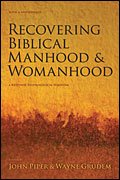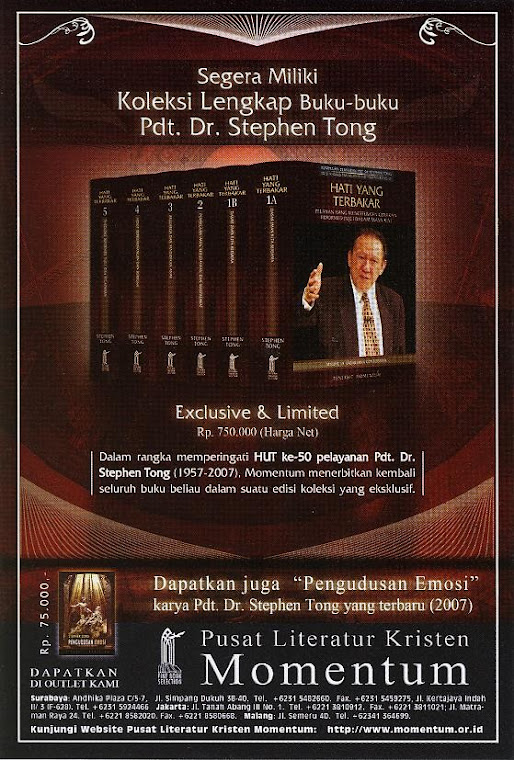21 September 2014
Book Description-286: BACK TO BASICS: Rediscovering the Richness of the Reformed Faith (ed. David G. Hagopian, J.D.)
Reformed faith is a Christian faith which is Biblical and consistent, but many Christians oppose this faith because they never understand what Reformed faith is. What is Reformed faith? What do Reformed theology believe?
Get the answer from:
Book
BACK TO BASICS:
Rediscovering the Richness of the Reformed Faith
edited by: David G. Hagopian, J.D.
Foreword: Rev. R. C. Sproul, Ph.D.
Publisher:
Presbyterian and Reformed Publishing Co., Phillipsburg, New Jersey, 1996
In the introduction of this book, Dr. David G. Hagopian explains that Reformed faith is a faith is built on the sovereignty of God which are taught in the Bible. This sovereign God saves His people from sins and made covenant with them. The people who receive God’s covenant gather in one body of Christ, that is church. contributors explain 4 basic points in Reformed faith: conversion, covenant, church, and Christian life. Those basic points are explained clearly. In the first point, Douglas J. Wilson, M.A. explains about the Reformed concept of conversion include: the concept of election, atonement, and regeneration in Biblical perspective. In the second point, Douglas M. Jones III, M.A. explains about the Reformed concept of covenant in the Old and New Testament. The sovereign and gracious God made covenant with His people through Adam, Noah, Abraham, Moses, etc until Christ in order to redeem us and make covenantal relationship with us as His people. All covenant people are gathered in one body of Christ, that is church. In the third point, Rev. Roger Wagner, M.Div. explains that the church is “the assembly of those who have been called out of the world by the preaching of the gospel and called together to worship and serve God through faith and obedience to Jesus Christ.” In that same point, Roger Wagner explains about the sacraments in the church (holy communion and baptism) as signs and seals for the covenant community and he also explains about the church disipline. In the last point, Dr. David G. Hagopian explains about the Reformed concept of Christian life. According to Dr. Hagopian, Christian life is built on the concept of who Christians are: sinners who are justified by Christ (justified sinners). That concept affects us to understand our life’s purpose is not to glorify ourselves but to glorify God. As justified sinners, Christ has made us free, so that in Christianity, there is a freedom but also there is a regulation (balanced position between antinomianism and legalism). Furthermore, Dr. Hagopian explains about how we as justified sinners respond to the God’s vocation to us by searching our vocation, listening to others about our vocation, and do what God wants us to do. In conclusion, Dr. Hagopian as editor concludes what the contributors explain before and challenge the readers to know and apply the Reformed concept of doctrine and life.
Endorsement:
“An excellent, concise presentation of the essence of Reformed faith. … a much needed wake-up call to the church.”
Rev. R. C. Sproul, Ph.D.
“Magnificent. … Great stuff.”
Jay E. Adams, Ph.D.
“… to the point … useful and intriguing … well suited to reach out to people in our age.”
Rev. James Montgomery Boice, Th.D.
“… indeed impressive. … would seem to have a place in the catechetical programs of Reformed churches. … an excellent source-book for pastoral study and for refreshment in the basics.”
Rev. D. James Kennedy, Ph.D.
“The writing is splendid, and the format (topic selection, organization, study questions, bibliography) seems excellent. …. I would recommend it.”
Prof. John M. Frame, D.D.
“… an outstanding presentation of the main doctrines of the Reformed faith.”
Jerry Bridges, D.D.
“… addresses many of the urgent needs of our churches today.”
Rev. G. I. Williamson, B.D.
Biography of the contributors:
David G. Hagopian, B.A., J.D. is a business litigator for the Orange County law firm of Smith, Deverich, Ellison & Harraka and is a member of the California state Bar, the Orange County Bar Association, the Christian Legal Society, and the Federalist Society for Law and Public Policy. Also, he is a ruling elder in the Orthodox Presbyterian Church. He graduated from the University of California, Irivine with a Bachelor of Arts (B.A.) in history and a minor in classical Greek (magna cum laude; Phi Beta Kappa). Then, he earned his Juris Doctor (J.D.) degree from the University of Southern California, graduating Order of the Coif.
Douglas M. Jones III, B.A., M.A. is a Fellow of Philosophy at the New St. Andrews College and senior editor of Credenda/Agenda magazine and editor of Canon Press, Moscow, Idaho. He serves as a teaching elder at Christ Church, Moscow, Idaho. He received his B.A. in philosophy from the University of California, Irvine and Master of Arts (M.A.) in philosophy from the University of Southern California. Among Jones's many writing credits are three children's books, Huguenot Garden, Scottish Seas, and Dutch Color, and contributions to Back to Basics: Rediscovering the Richness of the Reformed Faith, Repairing the Ruins: The Classical and Christian Challenge to Modern Education, Bound Only Once: The Failure of Open Theism. He co-authored Angels in the Architecture with Douglas Wilson.
Rev. Roger Wagner, B.A., M.Div., D.Min. is a pastor of Bayview Orthodox Presbyterian Church in Chula Vista, California. Both as a pastor and as president of the Board of Directors of Covenant Christian School, he has considerable experience in peaching and training Christians for effective service for the Kingdom of God. He has written various articles on pastoral and ecclesiastical subjects for the Journal of Pastoral Practice and Antithesis. Rev. Wagner also serves as a board member of the Southern California Center for Christian Studies and teaches theology and church history for Bahnsen Theological Seminary. His own book has just been published: “Tongues Aflame: Could You Preach Like an Apostle?” He received B.A. from Westmont College; Master of Divinity (M.Div.) from Westmisnter Theological Seminary in Philadelphia, and and in 1998 was awarded a Doctorate of Ministry degree in preaching from Westminster Seminary in California.
Rev. Douglas James Wilson, B.A., M.A. who was born on 18 June 1953 is pastor at Christ Church in Moscow, Idaho, the editor of Credenda/Agenda, a Fellow of Philosophy at the New St. Andrews College, and a founding school board member and instructor in ethics at Logos School. He is a frequent conference speaker. He received B.A. in philosophy, M.A. in philosophy, and B.A. in classical studies from the University of Idaho. Wilson has written on theological subjects in books such as Mother Kirk: Essays and Forays in Practical Ecclesiology, To a Thousand Generations on infant baptism, and "Reformed" Is Not Enough: Recovering the Objectivity of the Covenant. He has also been a noted advocate for Van Tillian presuppositional apologetics and postmillennialism. Letter from a Christian Citizen is Wilson's response to atheist Sam Harris's Letter to a Christian Nation. In May 2007, Wilson debated another noted atheist, Christopher Hitchens, in a six-part series published by Christianity Today. In October of the following year, they debated in person in three separate venues on three consecutive days.
Subscribe to:
Comments (Atom)





